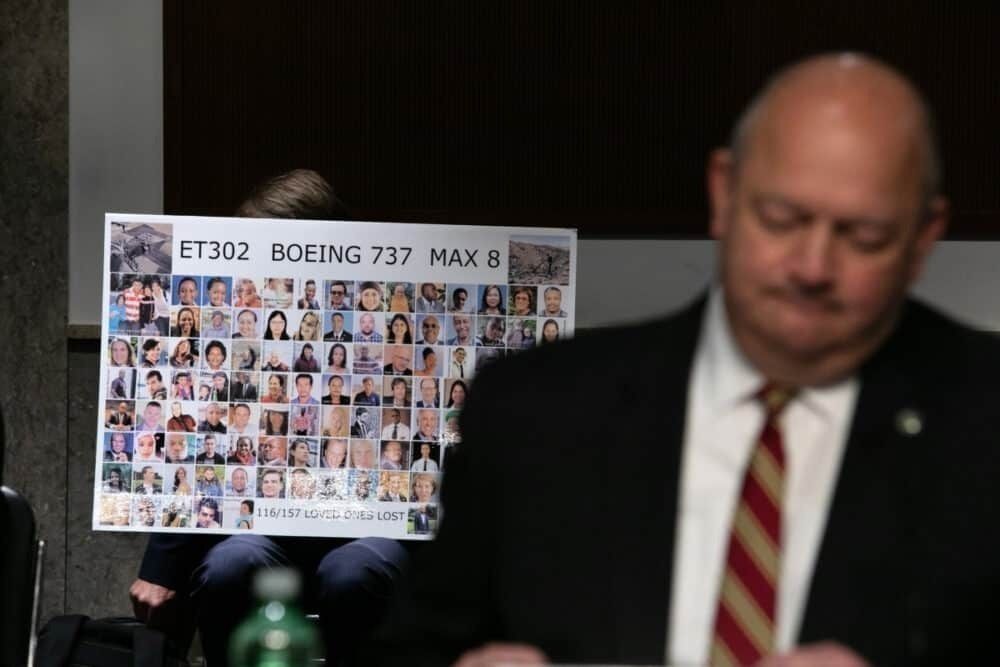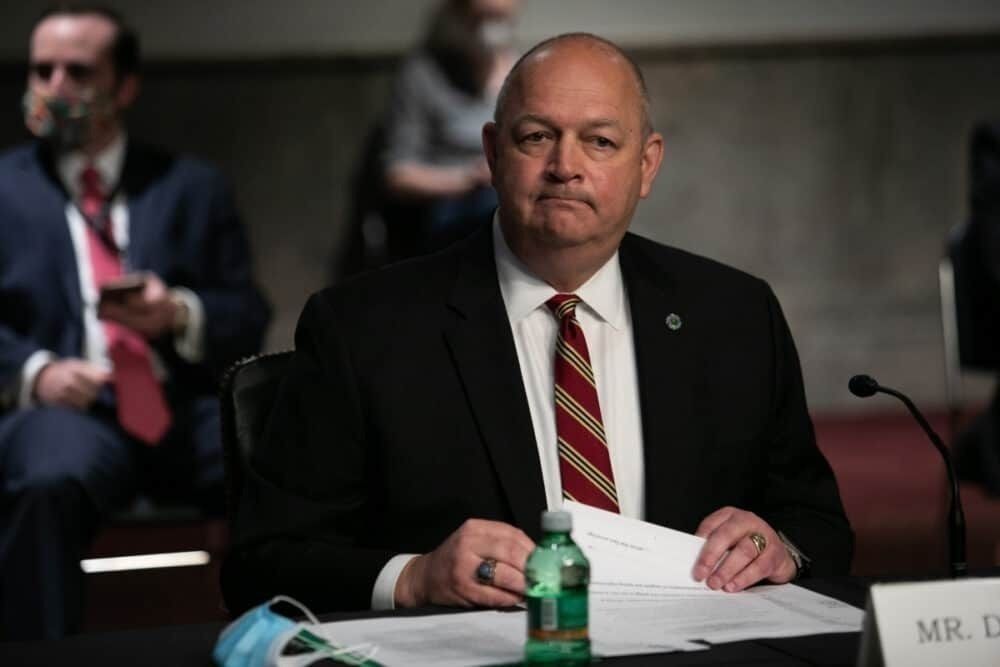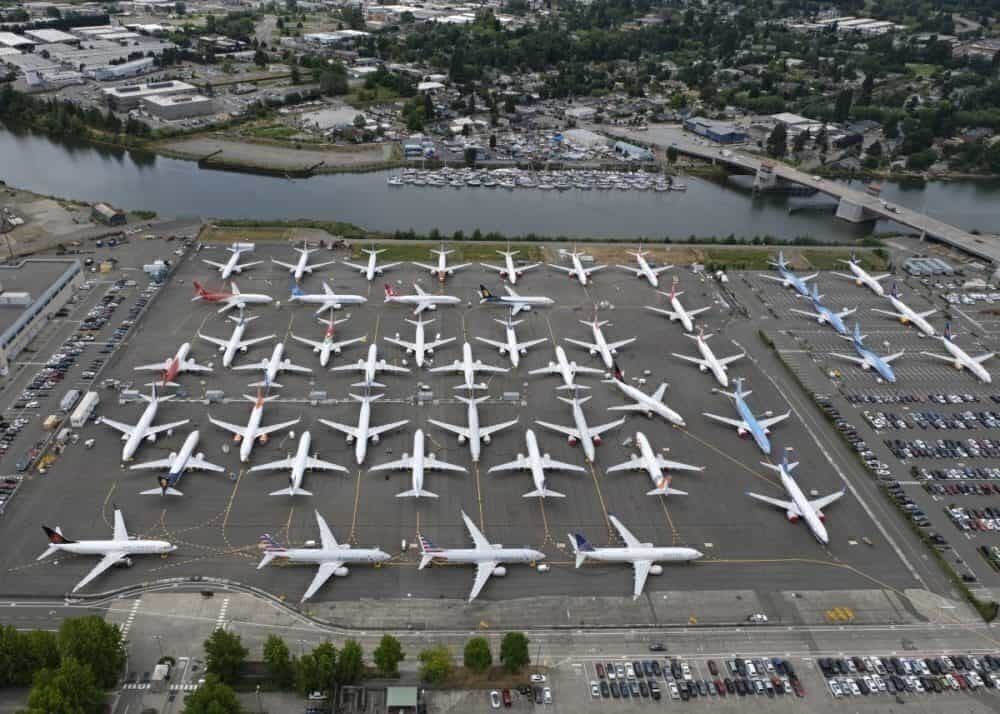Today's Senate hearing saw the FAA chief, Stephen Dickson, getting a grilling from a number of senators, some in person and some by remote video. Dickson kept his cool though, giving several updates to progress on the 737 MAX, including the fact that he plans to fly it himself before certification is issued.
Dickson: "I intend to pilot the aircraft myself"
Today's Senate hearing, entitled Examining the Federal Aviation Administration's Oversight of Aircraft Certification, was an unusual affair. A sparsely populated room, officials in masks, hand sanitizers on tables, and senators appearing by video link… COVID had definitely made its mark.
Positioned behind the FAA chief Stephen Dickson, a relative of a passenger from Ethiopian flight ET302 held up a board, plastered with photographs of the victims of the crash, for the duration of the hearing. At the last minute, Michael Stumo, Father of Samya Rose Stumo, a victim of the crash, had been granted a panel hearing following Mr Dickson's.
While it wasn't the focus of the hearing overall, Dickson was keen to update on the progress with the recertification of the 737 MAX. Turning to this in his opening remarks, he was firm that there was no particular timeline for recertification, and that no green light would be given until all requirements were met. Interestingly, he also said that he would not recertify the aircraft for service until he, personally, had piloted it.
"As I've said many times, I will not sign off on this aircraft until all FAA technical reviews are complete. I also intend to pilot the aircraft myself before the FAA makes any ungrounding decision."
While it's clearly a move designed to instill a certain level of confidence in the aircraft, as an experienced pilot, it seems like the least Mr Dickson should do.
Dickson is well placed to test pilot the MAX
Stephen Dickson does not come from a political background, unlike his predecessor Michael Huerta. Quite rightly so, Dickson has a long history in aviation, beginning as an F-15 fighter pilot before moving to Delta Air Lines.
During his time as a pilot, he flew the Boeing 727, 757, 767 and, naturally, the 737. He also captained the Airbus A320. Although he finished his time at Delta as an executive, his career speaks for itself. He also says he is confident he has the right skills to take on the 737 MAX, saying today,
"I've got quite a bit of flying time on the 737. Within my first month in the job, I'd been out to Seattle and flown various profiles, so I'm very familiar with the plane. Dan Elwell and I will be completing the same simulator training that Joint Operations Evaluation Board (JOEB) pilots will be undergoing, and then I'll complete a flight profile on the aircraft as well, so will have several days of preparation to get ready for that."
Has COVID slowed recertification?
It's been over a year since the 737 MAX was grounded, and although noises are being made about things moving forward, it is still not yet cleared to fly. Senator Roger Wicker, who is leading the investigation into the FAA, was clear that things shouldn't be rushed, saying,
"The FAA Boeing and international regulators involved in the recertification process should take whatever time is needed to get the recertification right."
Still, Dickson was asked whether the COVID crisis had shifted the timeline for recertification of the plane. He responded by saying,
"We are not on any timeline. We're narrowing the issues and we have not had any impact from COVID-19 up to this point. To get up to the point of an evaluation board, that involves international pilots and international travel, so we're looking to have the processes in place to be able to support that work.
"But up to this point, the process has proceeded without interruption."
Dickson also put some color into the level of detail being required to get this plane back into service. He stated that it is not just the MCAS functionality that's being addressed, but essentially the entire flight control system. More redundancy is being built in, to make it a more robust system overall. He commented,
“It’s an extremely ambitious project … that's why it's such a journey that we've been on.”
Stay informed: Sign up for our daily aviation news digest.




